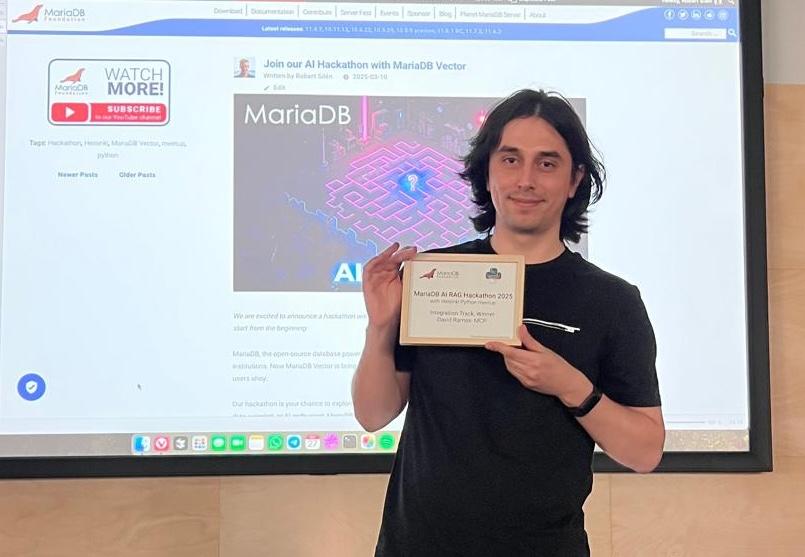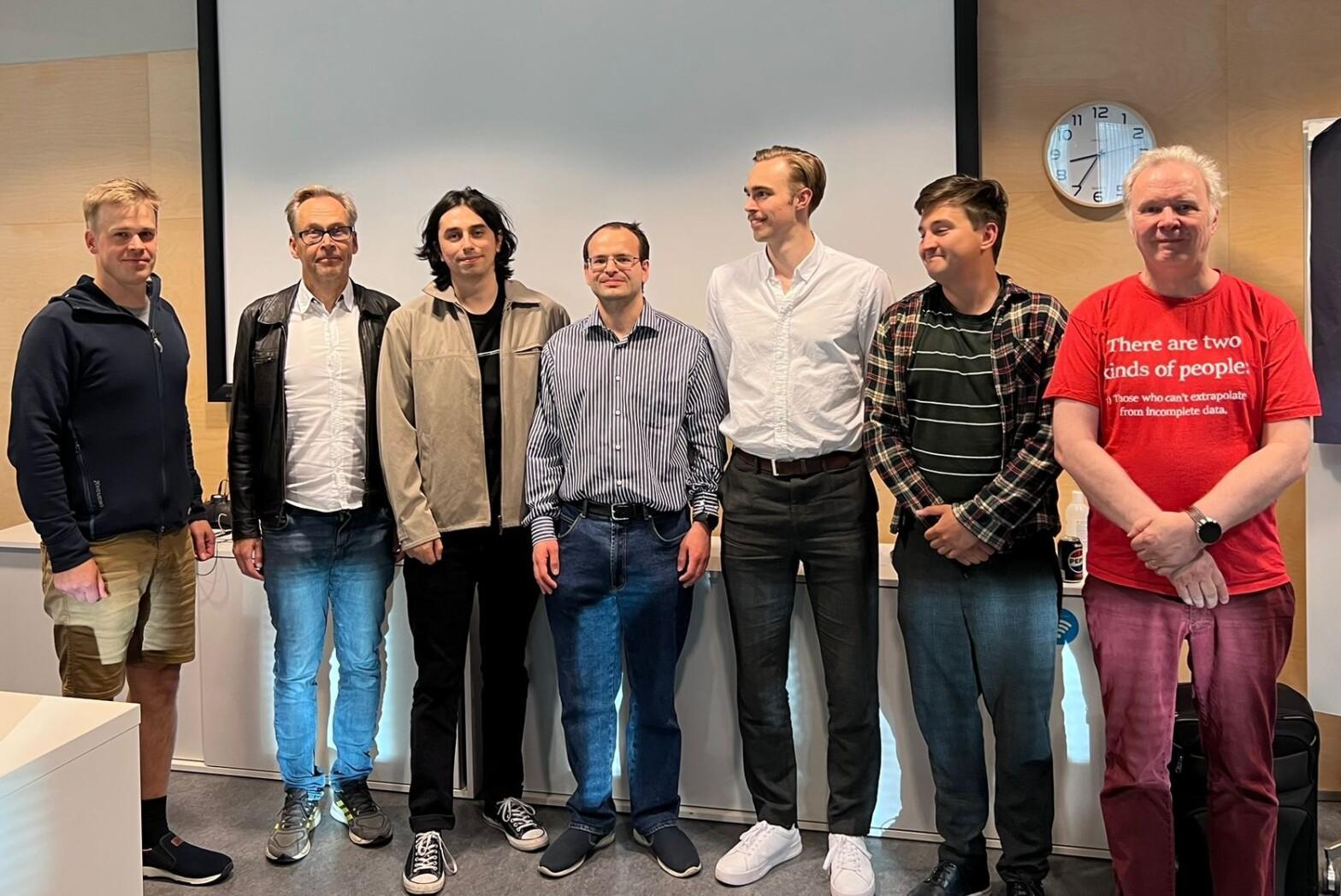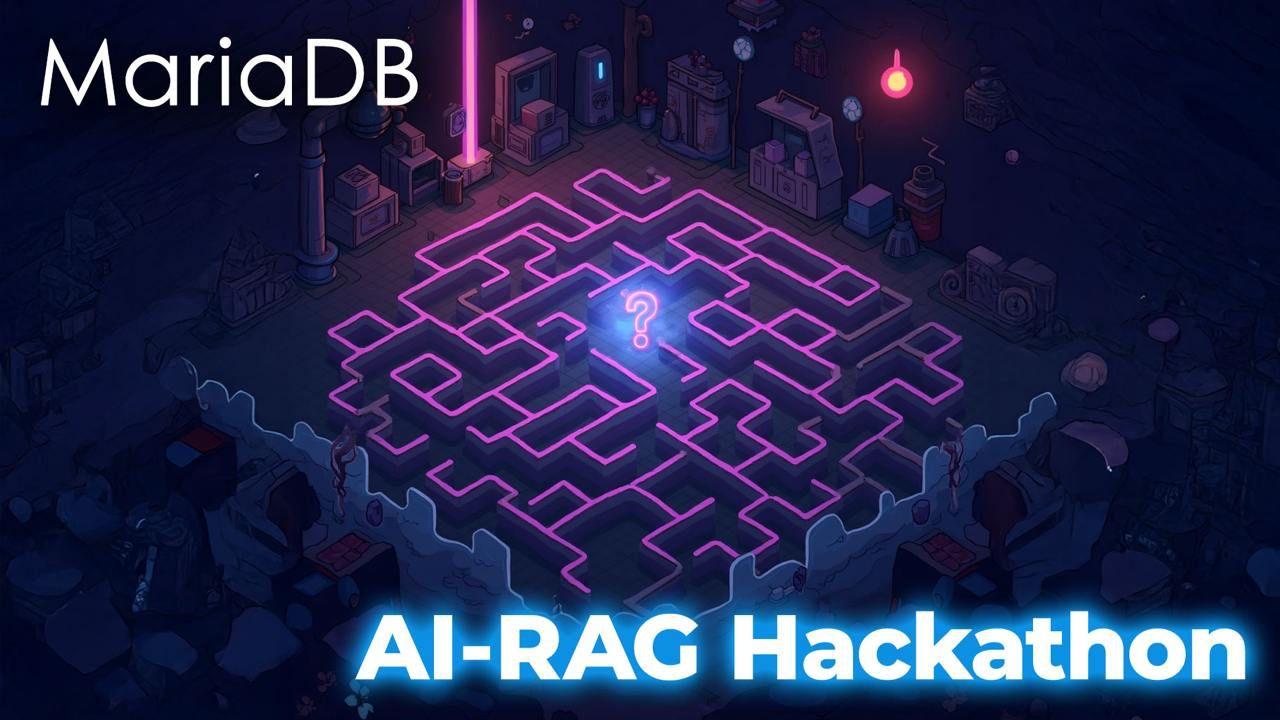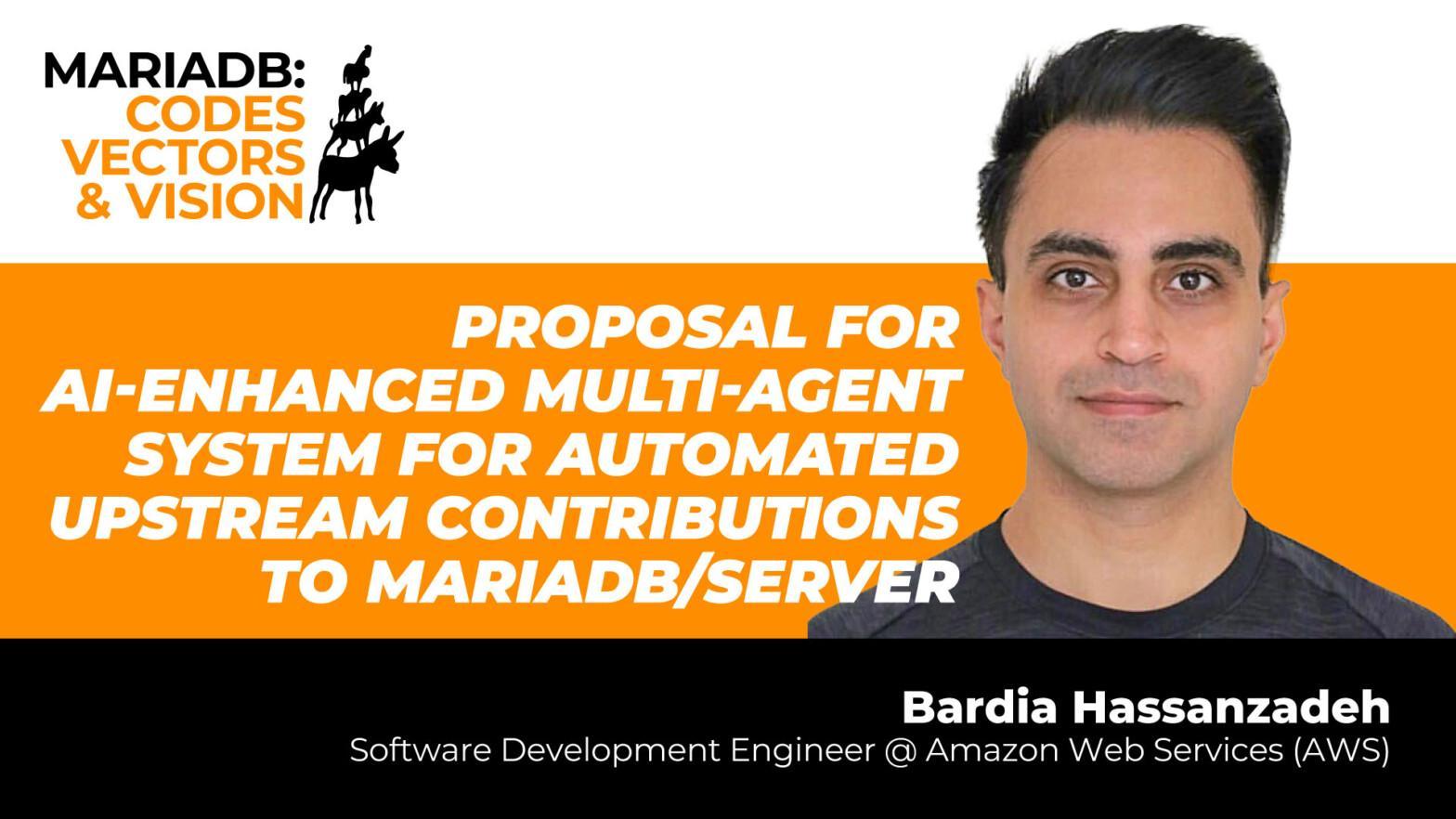Category Archives: Development
We continue our blog series on learning more about users of MariaDB. Searching LinkedIn for posts about MariaDB this morning we saw an impressive confident post about using MariaDB in a RAG solution named SemantiQ. We got curious about it and reached out to the author Lorenzo Cremonese to have a chat.
Tell us about yourself Lorenzo!
I’m an Italian studying in Spain. I began programming when I was 14, and I’m now 22. I’m a self-taught web developer since 3-4 years ago, and I’m now doing a two year University education in Spain focused on web development at the institute IES ENRIC VALOR, in Pego.
…
Continue reading “Can you do RAG with Full Text Search in MariaDB?”
Now is a good time to upgrade to the freshest MariaDB Server. MariaDB 11.8 is the yearly long term support release for 2025. It’s the first LTS with support for MariaDB Vector, and it includes a number of other updates based on user requests. You can seamlessly upgrade to MariaDB 11.8 from MariaDB 11.4 (the previous LTS) or any older release, back to MariaDB Server 10.0 or earlier, including most versions of MySQL Server.
MariaDB 11.8 LTS includes everything added since 11.4, incorporating changes from 11.5, 11.6, 11.7, as well as new features not released before.
…
Last week we announced the winners of the MariaDB AI RAG hackathon that we organized together with the Helsinki Python meetup group. Now is time to go for a deep dive into the innovation track winner. Dymtro Abramov put together an end to end RAG application for making technical meetup videos searchable with semantic relevance (based on their caption texts). We were impressed by the idea and the implementation that is definitely beyond just a proof of concept for AI RAG with MariaDB Vector.
Dmytro, tell us about yourself and why you decided to join the Hackathon?
…
We recently announced the winners of the MariaDB AI RAG hackathon that we organized together with the Helsinki Python meetup group. Let’s deep dive into the integration track winner. David Ramos chose to contribute a MariaDB integration for MCP Server. MariaDB plc was impressed by the results and has picked it up for further development with more features.
David, tell us about yourself and why you decided to join the Hackathon?
I am an aspiring Data Scientist from Colombia. I studied Physics in college, but by the time I graduated, I realized what I enjoyed the most was working with data and programming, so I decided to make the shift to Data Science.
…
The Helsinki Python meetup on Tuesday 27th May was hosted by MariaDB Foundation with nearly 100 participants of the 2600+ members of the Helsinki python meetup community.
In addition to being a successful opportunity to mingle and learn python together, we finally got to announce the winners of the MariaDB AI RAG Hackathon! (winners posing in the feature photo of the blog)
Presentations: AI and MariaDB
We welcomed participants of the meetup with a brief introduction to what MariaDB is as a software, and the sponsoring parties: MariaDB Foundation, Open Ocean Capital and verkkokauppa.com.
…
Continue reading “Helsinki Python meetup with AI RAG and MariaDB Foundation”
I think you’ve come to expect that every collaboration with Intel leads to meaningful, well-executed projects that bring great value to the community. This time, we’re spreading our wings towards empowering enterprises to deploy AI solutions, and we’re excited to show how MariaDB Vector fits into the Open Platform for Enterprise AI (OPEA).
🤖 Open Platform for Enterprise AI
The Open Platform for Enterprise AI, or simply OPEA, is a new sandbox-level project within the LF AI & Data Foundation where Intel plays a pivotal role in its active development and once again it shows its strong commitment to open-source innovation.
…
On Monday we had our final submission day for the MariaDB AI RAG Hackathon. We got several high quality replies in both tracks: integration and innovation.
The quality was so high that we are keen to replicate this hackathon in other locations and are currently looking for cooperation partners. We are truly grateful to the Helsinki Python meetup group without which this would not have been possible. They have a great community, organise excellent events, and played a key role in making the hackathon happen.
We are now reviewing the submissions together with the Helsinki Python meetup group.
…
Continue reading “Impressive Submissions at the MariaDB AI RAG Hackathon”
We at MariaDB Foundation are thrilled to see Amazon at the forefront of applying artificial intelligence to open source contributions — with MariaDB as their pilot.
At the May 6th MariaDB meetup in Bremen, Bardia Hassanzadeh, PhD, presented the Upstream Pilot tool: an AI-based assistant designed to help developers identify, analyze, and resolve open issues in MariaDB more effectively.
This initiative is the most promising we’ve seen for improving the open source contribution process. Bardia and Hugo Wen of Amazon gave us a preview last week and we were already very impressed.
…
Continue reading “Amazon’s AI-agents for MariaDB Contributions”







